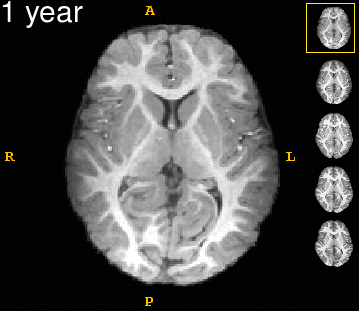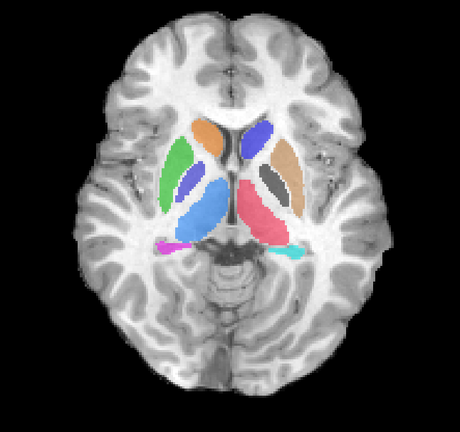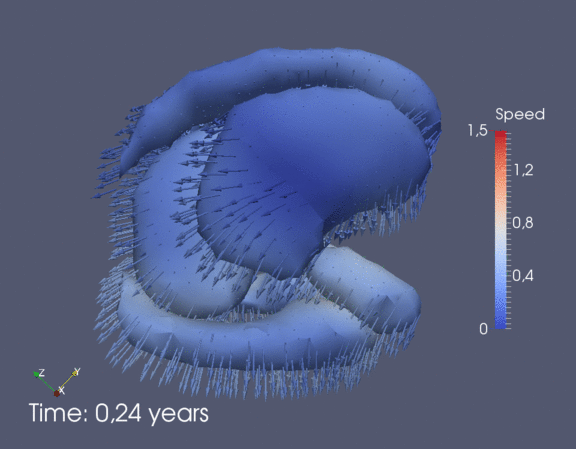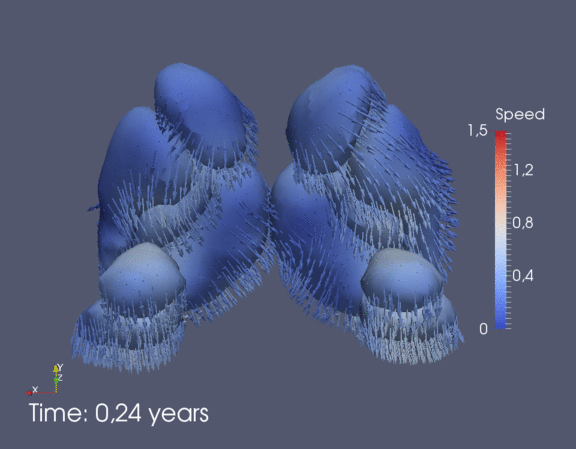Difference between revisions of "Project Week 25/SALT Spatiotemporal Modeling:"
Jfishbaugh (talk | contribs) |
Jfishbaugh (talk | contribs) |
||
| Line 19: | Line 19: | ||
|<!-- Approach and Plan bullet points --> | |<!-- Approach and Plan bullet points --> | ||
| − | Longitudinal dataset consists of 553 subjects with a total of 1530 scans. MR images are | + | Longitudinal dataset consists of 553 subjects with a total of 1530 scans. MR images are acquired at clustered ages of 1, 2, 4, 6, 8, and 10 years of age. Subjects commonly have missing data points, though many subjects have 3 or more more scans. We focus this week on getting the data organized, setting up the processing pipeline, as well as estimating a model for a single subject. We would also like to identify Slicer tools that are helpful for our analysis, to be considered for inclusion in Slicer SALT. |
|<!-- Progress and Next steps (fill out at the end of project week), bullet points --> | |<!-- Progress and Next steps (fill out at the end of project week), bullet points --> | ||
Revision as of 08:39, 30 June 2017
Home < Project Week 25 < SALT Spatiotemporal Modeling:
Back to Projects List
Key Investigators
- James Fishbaugh (NYU Tandon School of Engineering, USA)
- Guido Gerig (NYU Tandon School of Engineering, USA)
Project Description
| Objective | Approach and Plan | Progress and Next Steps |
|---|---|---|
|
Slicer Shape AnaLysis Toolbox (SlicerSALT) is a standalone version of Slicer specifically for shape analysis, currently under development. One aspect of the project is the validation of the tools to be included in SlicerSALT. In this project, we will begin validating the shape regression component with a longitudinal database of subcortical structures. |
Longitudinal dataset consists of 553 subjects with a total of 1530 scans. MR images are acquired at clustered ages of 1, 2, 4, 6, 8, and 10 years of age. Subjects commonly have missing data points, though many subjects have 3 or more more scans. We focus this week on getting the data organized, setting up the processing pipeline, as well as estimating a model for a single subject. We would also like to identify Slicer tools that are helpful for our analysis, to be considered for inclusion in Slicer SALT. |
Illustrations
 |

|
 |

|